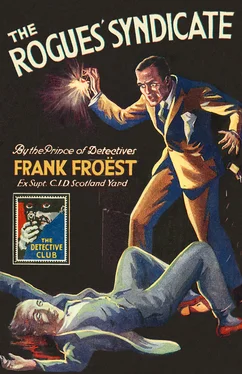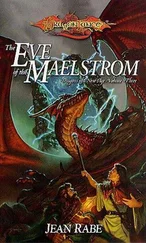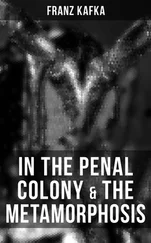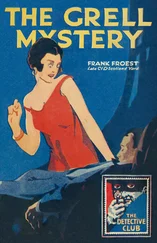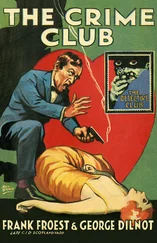‘In a minute,’ he said to the waiting clerk, and put the card in his waistcoat pocket. ‘Well, gentlemen, you know as much as I do now. If there’s anything else you want to know, just drop in and see me when you like. Good-morning.’
They accepted their dismissal, and he took another glance at the card.
‘Miss Lucy Olney,’ he read, and underneath written in pencil, ‘Peggy Greye-Stratton.’
THE early evening papers were on the streets before Jimmie Hallett rose, and the inevitable reporters had established a blockade of his hotel. He cursed them while he shaved. It seemed that the notoriety which he had left New York to escape had followed him to England. As an old newspaper hand himself, he had little taste to be served up again all hot and spiced for the delectation of a morbidly hungry public.
He surveyed a salver full of cards that had been brought up to him with a scowl. Vivid recollections came to him of the way in which he had himself dealt in ‘personal sketches’ and ‘personal statements’ on big ‘stories’, and he began to conceive a certain fellow-feeling for his long-forgotten victims. But his chin grew dogged.
‘I’ll see ’em in blazes before I’ll talk. Go away and tell ’em I’m dead.’
The liveried functionary who had brought the cards gave as near an approach to a grin as his dignity permitted.
‘Yes, sir,’ he said quietly; ‘they’ll not believe it, sir.’
Hallett swung his eyes sideways to the man, and his hand slipped to his trousers pocket. It was no use getting angry.
‘Say, what are you getting out of this, sonny?’ he demanded. ‘It’s all right. You needn’t answer.’ A banknote crackled between his fingers. ‘If you can clear out the gang below this is yours. It’s more than they’ll give you.’
‘Very good, sir. There’ll be no harm in telling them you’re in a very critical condition, sir, I suppose?’
‘Not in the least. If they’re the least bit human they won’t worry a dying man. It will stave them off for a while perhaps.’
As a matter of fact, beyond a mild headache and some stiffness, he felt scarcely a trace of the attentions of his overnight assailant. He was uncertain whether that was a tribute to the skill of the divisional surgeon or to the hardness of his skull. He inwardly congratulated himself that the injury was not a particularly noticeable disfigurement. Indeed, a skilful brushing of the hair almost hid it.
He descended to breakfast with an appetite that in itself was proof that his general health remained unaffected, and discovering that there was a back entrance to the hotel, decided to make use of it, lest some pertinacious reporter might still be lingering in the reception-hall. He wanted to know something of what the police were doing, and a visit to Scotland Yard seemed the best way of finding out. In the background of his thoughts there was perhaps less concern that a murderer should be brought to justice than curiosity in regard to the lady of the fog.
There is a way mostly used by tradesmen at the Palatial Hotel, which leads through a narrow alley for fifty yards on to the embankment. Through this Hallett sauntered. He was half way through when a tap on the shoulder caused him to wheel. He confronted a slim-built, sallow-faced man, of lank moustache and burning black eyes.
‘Pardon,’ he said. ‘Your name is Hallett?’
He spoke silkily, and the extremely correct pronunciation of his words showed that he was neither English nor American.
‘Well?’ demanded Hallett, shortly.
He feared that he had been run down by a reporter, after all.
‘You were at the place where this man was killed yesterday, eh?’ The man shook a newspaper under his face.
‘Well?’ said Hallett again.
He had resumed his walk, but the other was keeping pace with him.
A hand caught at his arm. The burning black eyes were within three inches of his face.
‘You know who killed heem, eh?’ The English had become a little less correct under stress of some excitement. ‘You have not told the pol-lice yet? You will not tell them?’
Hallett shook himself free angrily.
‘Look here, my man,’ he said. ‘I don’t propose to answer your questions, so you can put that in your pipe and smoke it. Now git!’
He clenched his fists.
The foreigner’s hand dropped to his pocket. He did not remove it, but pressed something hard through the cloth against the young man’s ribs.
‘You are hasty, Mr Hallett,’ he remonstrated. ‘You don’t know what it is you say—what you’re up against. This is a pistol you can feel’—he pressed it close—‘and unless you listen quietly I shall keel you dead. Understand?’
‘Well?’ said Hallett, quietly for the third time.
‘You were at the house. You saw who killed the old man? You would know him again?’ The man did not wait for an answer. ‘You must keep your mouth shut. This is a warning. If you see him again you not tell, eh? There are many of us. You will be watched. And if you split—’
A prod with the pistol finished the sentence.
The theory that his molester was a reporter had long ago been abandoned by Jimmie Hallett. It was evidently thought that he had seen the face of the man at Linstone Terrace Gardens, and he was to be terrorised into silence. He had sense enough to reflect that, for all the audacity of the hold-up, the threat of surveilance was bluff—perhaps even the concealed pistol was bluff. Not that his actions would have differed much even had he supposed them real.
He took a quick step backwards and sideways, and a bullet that tore its way through the cloth of the other man’s pocket told that that part of the story was reliable. Then Hallett’s knee was in his back, and Hallett’s arms were woven in a strangle-hold about his throat. The man collapsed gurgling.
The whole business had occurred in barely two seconds of time. As they fell there was a third arrival.
‘Hold him down a minute, Mr Hallett. That’s all right.’
The third man possessed himself of the squirming captive’s wrists and twisted them behind his back to Hallett. Then he methodically and quickly ran his hands through the prostrate man’s clothing, possessing himself of a still smoking Derringer and a formidable sheath-knife.
‘Thank you, sir. Now this gentleman might get up. We’ll run him along to King Street Station, and see what Mr Menzies has to say about it.’
Then Hallett noticed that the man who had come to his assistance was the liveried functionary who had accepted his five-pound note to put off the pressmen less than an hour ago. But he no longer wore livery. He was in quiet, unassuming tweeds, and his manner was not exactly that which might be expected from a waiter to an hotel guest—even under such strange circumstances.
He surprised Hallett’s look of inquiry, and smiled as he locked his arm into that of the prisoner.
‘Detective-sergeant Royal, sir,’ he explained. ‘I’ll let you know all about it later. What’s your name, my man?’
He shook his captive slightly.
‘Smeeth—William Smeeth,’ said the man sullenly; and Royal winked at Hallett.
‘That’s a good old Anglo-Saxon name,’ he said. ‘Come along.’
It was in the Criminal Investigation office at King Street, while they were awaiting Menzies, that Royal gave his explanation, with a certain apologetic tone.
‘It was this way, Mr Hallett. You see, Mr Menzies asked me to keep an eye on you when you were sent home yesterday. Of course, he thought you were all right, but it doesn’t do to take anyone’s word in our trade. This is murder you see, and, though it seemed all right, you might have forged or stolen the introduction you had. We could not be sure your name was really Hallett.’
Читать дальше
